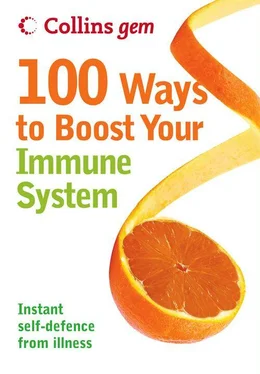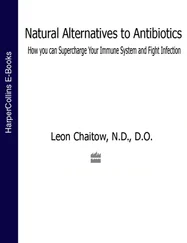Allergies Allergies Allergic disorders occur when the immune system over-reacts to exposure to substances in the environment and triggers defence mechanisms such as swelling, watery eyes and sneezing. The substances that provoke this over-reaction are called allergens, and over-reactions to allergens are typically controlled by medications called antihistamines. When an allergen enters the body of a person with a sensitive immune system, histamine and other chemicals are released by certain cells. It is these that cause itching, swelling, watery mucus production, skin rashes and other symptoms. Such symptoms are inconvenient and unpleasant but are not life-threatening; treatment generally involves the use of medications, such as antihistamines. Sufferers can also take steps to reduce their exposure to known allergens. The most common allergic disorders include: Asthma: A respiratory disorder that involves an allergic response by the lungs and can cause breathing problems. If the lungs are sensitive to certain allergens, such as pollen or dust mites, this can trigger a narrowing of the breathing tubes in the lungs, making it hard for the person to breathe. Asthma symptoms can also be triggered by respiratory infections, exercise, cold air, stress, smoke and other pollutants. Eczema: An over-sensitive reaction that occurs in the skin and causes a scaly, itchy rash. Exposure to environmental irritants can worsen symptoms, as can dry skin, exposure to water, temperature changes and stress. Consult your doctor for a diagnosis of eczema because it can be hard to differentiate from other skin disorders. Food allergies (to products such as nuts), seasonal allergies (such as hay fever) and environmental allergies (to organisms such as dust mites). All of these are also caused by an over-sensitive immune system, which leads to an incorrect immune response when the immune system reacts to allergens or substances that are generally harmless.
Improving your immunity Improving your immunity A large number of health problems can be linked to an under-par immune system. On the surface, the symptoms of hay fever may seem quite different from the painful, inflamed joints of arthritis or the wheezing of asthma. They are all triggered, however, by an immune system that is struggling to cope with the pressures being placed on it. There are a number of reasons why your immune system may be compromised or struggling. It is important to understand that in the majority of cases your immunity can be weakened or strengthened by factors within your control. Although the immune system is less efficient in children and the elderly, even the most susceptible person can boost their immune system by: keeping up to date with vaccinations avoiding common enemies of immunity heeding the warning signs of an immune system under pressure making the right diet and lifestyle choices.
Vaccination Vaccination Your doctor can help you stay healthy by offering you appropriate vaccinations to reduce your risk of getting infected with diseases that are potentially life-threatening. Many vaccines are given in childhood, but adults can also be vaccinated to prevent illness such as tetanus and influenza. Your body can become immune to bacteria, viruses and other germs by getting a disease – this is called natural immunity. Immunity can also be developed through vaccines – vaccine-induced immunity. Vaccines work by stimulating an immune response without causing disease. Several doses of a vaccine may be needed for a full immune response and it should be noted that vaccines are not free of possible side effects, which often include swelling at the injection site or a mild fever. Vaccines are the first line of defence against diseases such as polio, measles, tetanus, mumps, rubella, influenza and diphtheria. Were it not for the widespread use of vaccines, a far greater number of deaths would have occurred in childhood, and a great many more people would be living with the chronic and crippling after-effects of disease. Despite the proven benefits of vaccines there is public concern about their safety and possible side effects, but vaccination continues to be strongly recommended by doctors because gaining natural immunity involves considerable risk. Vaccination is generally considered by health experts to be the right thing to do as it protects you as well as others. If you have any concerns about vaccinations for which you or your child are eligible, however, it is important to discuss them with your doctor before you come to an informed decision. You can also look at the following website: www.immunisation.nhs.uk . This is an up-to-date source of information on vaccines, disease and immunisation in the UK. Whatever you decide, remember that the overwhelming majority of evidence and research suggests that vaccinations save lives.
The flu jab The flu jab Catching flu is tough for most people but for some, especially the elderly, it can lead to serious illnesses such as bronchitis and pneumonia that may lead to hospital treatment and – in severe cases – death. That’s why doctors advise all people over the age of 65, and those with long-term medical conditions, to have a yearly flu vaccination. The best time to have a flu jab is between late September and early November, to prepare for the winter months. The flu virus mutates frequently, which is why yearly jabs are advised to guarantee protection against the latest strain of the virus. If you think you need a flu vaccination, check with your doctor or ask your local pharmacist for advice. Bear in mind that it takes between seven and ten days for the vaccine to take effect, and that the flu jab doesn’t stop you catching the many other viruses that appear every winter.
Immunity enemies
Is your immune system in trouble?
Making immune-boosting diet and lifestyle choices
Part Two: 100 Immune System Boosters
Boosting immunity with nutrition
Boosting immunity with lifestyle changes
Boosting immunity with supplements
Boost immunity with a fighting spirit
Part Three: Fighting Infection
Working out your immune system
DIY home remedies for colds and flu
Take probiotic supplements
Don’t fly unless necessary
Take good care of yourself
Index
Copyright
About the Publisher
INTRODUCTION
YOUR INVISIBLE ARMY
Without a strong immune system you can’t live younger or longer. Your immune system is your invisible army, working tirelessly around the clock to keep you fit and healthy, and fighting off invasion by foreign organisms that can lead to premature ageing and disease.
A vigorous immune system is vital to good health, both physical and mental. Tiredness, frequent colds and other infections, allergies, mood swings and premature ageing are sure-fire signs of a weakened immune system. Learning how to protect and support your immune system is therefore the most important thing you can do for your health and well-being. Fortunately, there are many ways in which you can strengthen and support your immune system – and keep your troops in peak condition – without resorting to the use of antibiotics.
This book gives you all the advice you need to achieve this healthy state of affairs.
So be good to yourself. Read on to discover everything you need to know to stay free from disease and maximise your potential for high-level health, happiness and vitality.
Drawing on a variety of disciplines in medicine and natural health, each immune booster in this book will provide practical strategies you can use in your daily life to strengthen your resistance to illness. And if you do get sick you’ll find information that will help you get well faster.
PART ONE: UNDERSTANDING YOUR IMMUNE SYSTEM
What is your immune system
Читать дальше




![Theresa Cheung - The Dream Dictionary from A to Z [Revised edition] - The Ultimate A–Z to Interpret the Secrets of Your Dreams](/books/692092/theresa-cheung-the-dream-dictionary-from-a-to-z-r-thumb.webp)







